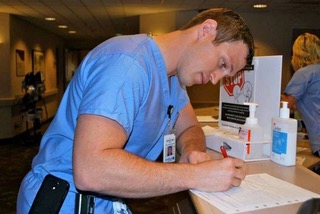In the world of sports medicine, the focus often falls on treating injuries and enhancing performance. However, one crucial aspect that sometimes gets overlooked is the importance of rest and recovery. Dr. Kent Scheff, a renowned primary care sports medicine physician, emphasizes that proper rest and recovery are essential components of an athlete’s overall health and success.
The Science Behind Rest and Recovery
Rest and recovery are not just about taking time off from training; they are active processes that allow the body to repair, rebuild, and strengthen itself between workouts. During intense physical activity, our bodies experience microscopic damage to muscle fibers, depletion of energy stores, and accumulation of metabolic byproducts. The recovery period is when the magic happens – muscles repair and grow stronger, energy stores are replenished, and the body adapts to the stress of exercise.
Dr. Kent Scheff explains, “Many athletes underestimate the power of rest. It’s during these periods of recovery that the body makes the adaptations necessary for improved performance. Without adequate rest, we risk overtraining, injury, and burnout.”
The Risks of Overtraining
Overtraining syndrome is a serious condition that can occur when athletes push themselves too hard without allowing for proper recovery. Symptoms can include persistent fatigue, decreased performance, mood changes, and an increased susceptibility to illness and injury. By ignoring the body’s need for rest, athletes may find themselves taking involuntary breaks due to injury or illness – often much longer than if they had incorporated regular rest periods into their training regimen.
Strategies for Effective Recovery
Incorporating effective recovery strategies into an athlete’s routine is crucial for long-term success and injury prevention. Some key strategies include:
- Sleep: Aim for 7-9 hours of quality sleep per night. During sleep, the body releases growth hormone, which is essential for tissue repair and recovery.
- Active Recovery: Light, low-intensity exercise on rest days can promote blood flow and help remove metabolic waste products from muscles.
- Nutrition: Proper nutrition, including adequate protein intake and hydration, is crucial for muscle repair and recovery.
- Stress Management: Mental stress can impair physical recovery. Techniques such as meditation, deep breathing, or yoga can help manage stress levels.
- Periodization: Structuring training programs with planned rest periods and varying intensity can help prevent overtraining and optimize performance.
The Role of Primary Care Sports Medicine
Primary care sports medicine physicians like Dr. Kent Scheff play a crucial role in helping athletes balance training and recovery. These specialists are trained to address the unique health needs of athletes, from injury prevention and treatment to performance optimization. They can provide personalized advice on recovery strategies, monitor for signs of overtraining, and help athletes develop sustainable training plans that incorporate adequate rest.
Rest and recovery are not signs of weakness but essential components of athletic success. By understanding and respecting the body’s need for recovery, athletes can enhance their performance, reduce their risk of injury, and enjoy longer, healthier careers in their chosen sports. As we continue to push the boundaries of human performance, it’s crucial to remember that sometimes, the most significant gains come not from doing more, but from allowing ourselves the time to recover and grow stronger.




